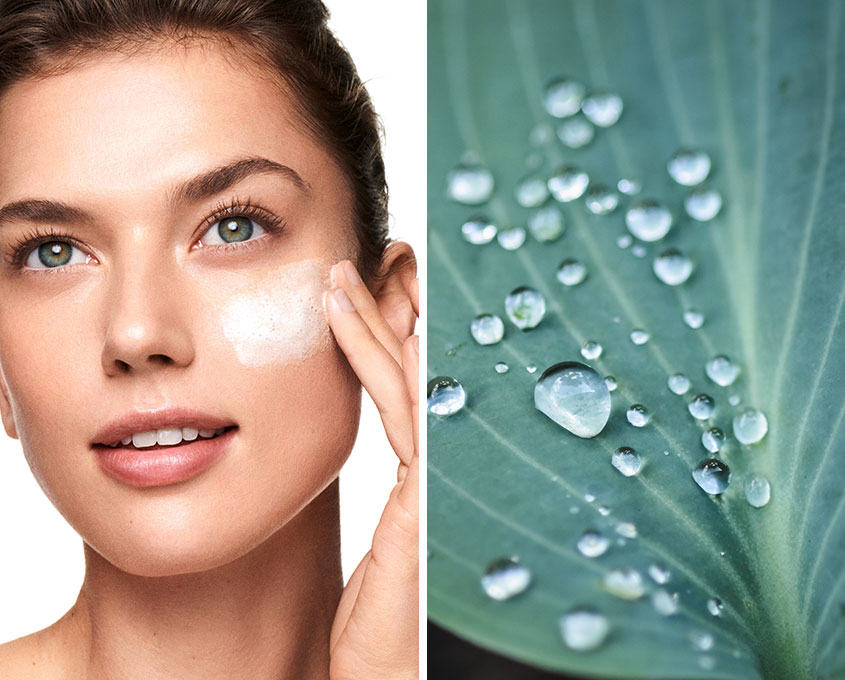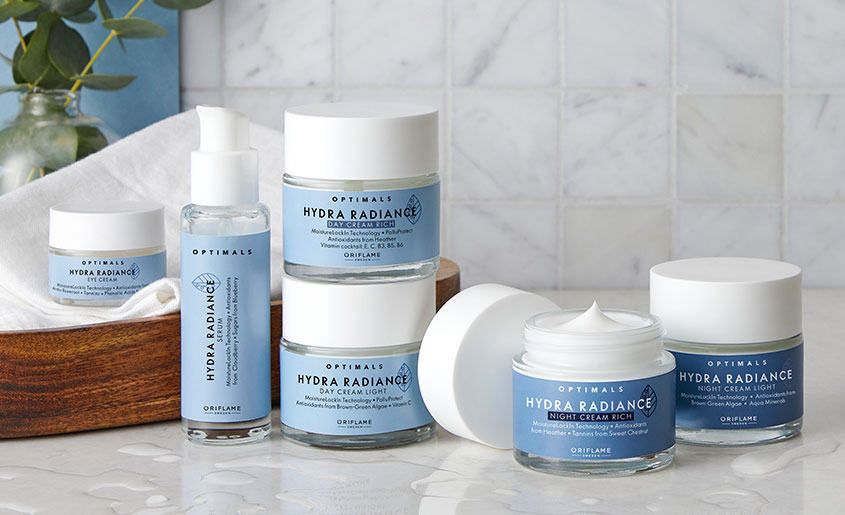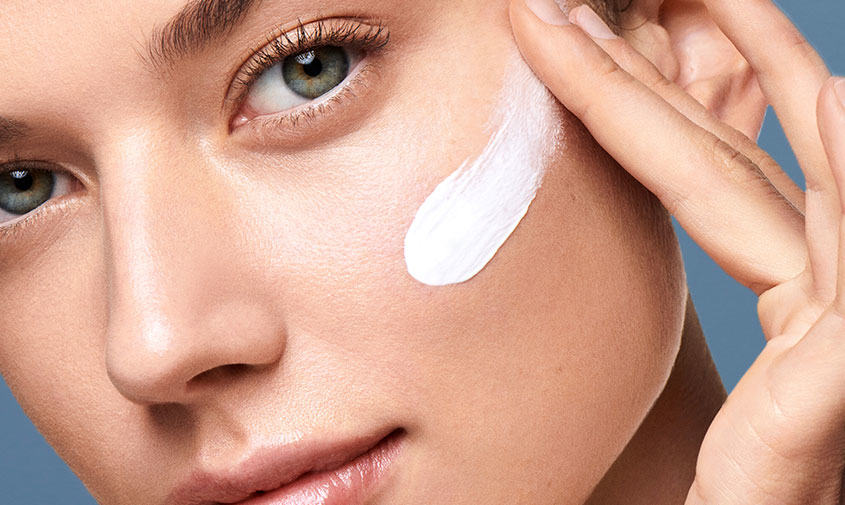Dry skin vs. dehydrated skin
Before we jump into tips and treatments for dryness and dehydration, let’s first examine the difference between them. Dry skin refers to a skin type, characterised by having an imbalance in skin oils. While dehydrated skin is a status that can happen to any skin type, wherein the skin lacks water rather than oil. To complicate matters, they can even coincide. It’s a fact and fairly common – even oily skin can get dehydrated too!
Your skin needs a balance of oil and water to maintain its health. It goes without saying, good skin care products and a daily routine are essential to keeping skin looking healthy, but skin care isn’t the only solution. We’ve rounded up our best life-hacks to help you care for dry and dehydrated skin. Keep reading to learn more.

1. Avoid over-cleansing
The Day Bath is trending. Yep, lockdown has us bathing at lunchtime. It’s a luxurious way to help cope with quarantining because a bath gives you a beautiful moment of self-care. But, sadly, soaking in a hot tub is not dry-skin-friendly. How about a hot shower then? Nope, exposing dehydrated skin to long stretches under hot water can strip the skin barrier from its natural protection. Try to keep your water warm (not hot) and minimise your time in the steam - dermatologists generally recommend showering for no more than 5-10 minutes. Better for your skin, and better for our planet!
2. Skin care to the rescue
Products that contain detergents and fragrances can increase signs of skin dryness further. Using a gentle or milky cleanser will help retain your skin’s natural oils and protect its moisture. Always choose an alcohol-free face wash and apply your moisturiser to damp skin; this can help the epidermis absorb your skin care better.
Moisturising is the obvious solution to calm dehydrated skin. But dry, dehydrated skin favours certain ingredients over others. A moisturiser formulated with shea butter, minerals, glycerine, hyaluronic acid or ceramides will help your skin hold water and relieve uncomfortable dryness. So, check your labels and layer on the moisture as needed.
Even if you have oily skin, a cream rather than a lotion may be your best bet. We suggest a non-greasy and light formulation, developed specifically for combination skin to improve hydration while balancing shine.
3. Humidify your home
No matter the season, you want your skin to feel comfortable and protected. Though, cold climates can be especially tough on skin. The colder the environment, the lower the humidity – and dry air can lead to dry skin.
For now, the pandemic has us spending a sizeable amount of time inside, confound to our homes. To help keep your surroundings (and skin) comfortable, consider purchasing a humidifier. Adding humidity to your room increases the moisture level to the air and in turn, helps your skin barrier stay hydrated.
Houseplants are natures humidifiers – and they can help, too. Plants release water in a process called transpiration. As the water moves through its leaves and stems it adds the well-needed vapours to the parched indoor air. Just remember to keep the plants hydrated by watering the soil and spraying their leaves often.

4. When it comes to your wardrobe…
If cabin fever is settling in as a result of social distancing, then you’re probably eager for a change of scenery. Before you (safely) venture outside, remember to protect weather-worn skin by covering up. Gloves, a hat and scarf will keep the cold air off skin - plus, covering up can help you to avoid tight pores, chapped lips, and tight-feeling and cracked skin.
Fabrics that are made from natural fibres tend to be more breathable and softer on dry skin. Wearing materials like cotton, bamboo, silk, or gentle wools (alpaca, cashmere, merino, are cosy examples that) won’t leave your skin begging to be scratched. And there’s no better armour than SPF, use it every day to keep the sun from scorching or drying out skin.
5. Consider your diet
Hydrating your body is vital to your health. This is an obvious statement, but are you drinking enough water? While the daily recommendation is eight glasses a day, if you’re active you’ll need to up the intake. The more hydration you lose, the more hydration you need.
With the link between what you ingest and your skin health, it’s worth taking a look at your diet overall. You can also hydrate the body by eating more water-rich fruits and vegetables. Plus, increasing your daily intake of essential fatty acids may help fortify your skin’s natural oil barriers. Consider including sources of fatty fish, a handful of nuts or an omega-3 + omega-6 supplement to aid dehydrated skin needs.
Stay safe and happy hydrating!



